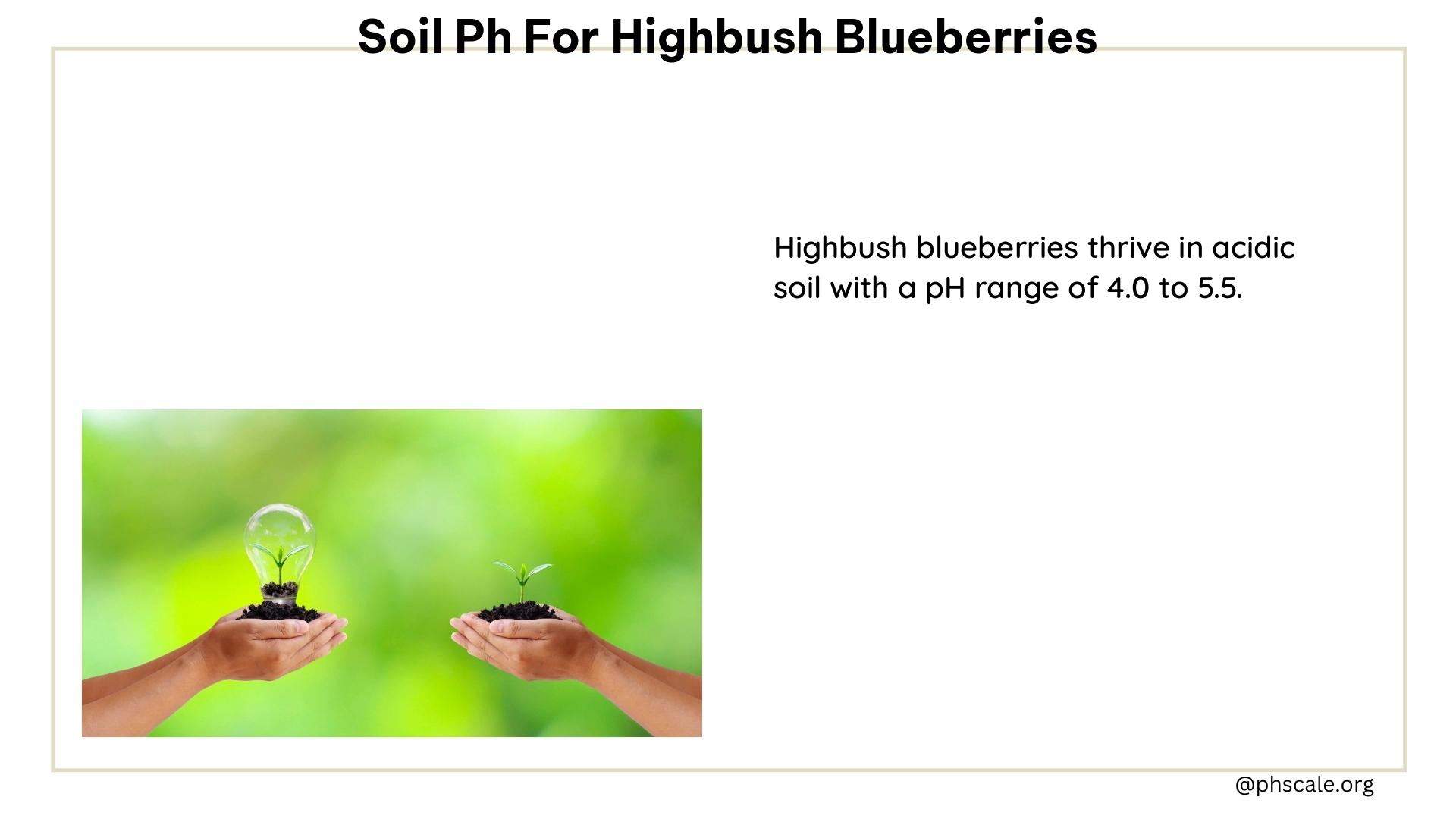The ideal pH range for highbush blueberries is between 4.5 and 5.2, which is crucial for their optimal growth and fruit production. This acidic soil condition allows blueberries to thrive by providing the necessary nutrients and creating an environment that suits their specific requirements. In this comprehensive guide, we’ll explore the importance of soil pH, methods to acidify the soil, and essential tips for maintaining the ideal conditions for your highbush blueberry plants.
Ideal pH Range for Highbush Blueberries
Highbush blueberries are a popular and versatile fruit crop that require a specific soil pH range to reach their full potential. The ideal pH range for these plants is between 4.5 and 5.2, which is considered highly acidic. This acidic soil condition is essential for the following reasons:
- Nutrient Availability: Blueberries thrive in acidic soils because it allows for the optimal availability and absorption of essential nutrients, such as iron, manganese, and boron.
- Root Growth: The acidic soil environment promotes the healthy development of blueberry roots, enabling the plants to efficiently uptake water and nutrients.
- Microbial Activity: The acidic soil pH supports the growth of beneficial microorganisms that help break down organic matter and release nutrients for the blueberry plants.
Acidifying the Soil

If your soil pH is not within the ideal range for highbush blueberries, you can take several steps to acidify it. Here are some effective methods:
Organic Soil Acidifiers
Use organic and OMRI-listed soil acidifiers, such as Espoma or Jobe’s, to lower the pH of your soil. These products are made from natural ingredients and are safe for the environment and your plants.
Acid Fertilizers
Apply acid fertilizers, like Down-to-Earth 4-3-6 Acid Fertilizer, to gradually lower the soil pH over time. These fertilizers contain acidifying compounds that help create the ideal conditions for blueberries.
Sulfur
Finely ground sulfur can be used to lower the soil pH. Incorporate the sulfur into the soil several months before planting and mix it thoroughly to ensure even distribution.
Peat Moss (Not Recommended)
While peat moss can help acidify the soil, its use is not recommended due to environmental concerns. Instead, consider using alternative mulches, such as pine bark fines or sawdust, which can also help maintain soil acidity.
Maintaining Acidic Soil pH
Once you have established the ideal soil pH for your highbush blueberries, it’s essential to maintain it. Here are some strategies to keep the soil conditions optimal:
Mulching
Apply a 3-4 inch layer of organic mulch, such as wood chips, bark, or pine needles, around the base of the plants. This helps retain soil moisture and prevent pH fluctuations.
Soil Testing
Regularly test the soil pH to ensure it remains within the ideal range of 4.5 to 5.2. Adjust your acidifying methods as needed to maintain the optimal conditions.
Additional Considerations
While soil pH is a crucial factor for the success of highbush blueberries, there are other important aspects to consider:
Soil Type
Blueberries prefer well-drained, sandy loam soils with a high organic matter content. Ensure your planting site has the right soil composition for optimal growth.
Planting and Fertilization
Plant blueberries in early spring, spacing them 4-6 feet apart for highbush varieties. Fertilize them with nitrogen-rich fertilizers, such as ammonium sulfate or urea, applying half at bloom and half a month later.
Contaminants and Chemicals
Avoid using lime in your blueberry beds, as it can raise the pH and hinder plant growth. Additionally, use organic and low-toxicity pesticides to minimize harm to the plants and the environment.
By understanding the ideal soil pH range for highbush blueberries and implementing the appropriate acidifying methods, you can create the perfect growing conditions for your plants to thrive and produce an abundant harvest.
